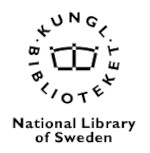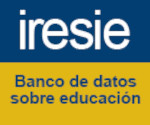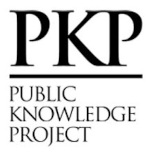Psychological suffering, adolescence, and Pandemic effects: Analysis of Psychotherapeutic Care in a Teaching Clinic
DOI:
https://doi.org/10.5020/23590777.rs.v24i3.e14194Keywords:
adolescence, pandemic, psychological distress, psychotherapyAbstract
This work is the result of extensive institutional research on the impact of the COVID-19 pandemic on the mental health of Rio de Janeiro residents. We aim to reflect on the different expressions of psychological suffering experienced by adolescents before and during the COVID-19 pandemic who underwent psychotherapy at the Applied Psychology Service (SPA) at University X. For this purpose, documentary research was carried out, collecting data from biannual reports of psychoanalytic psychotherapeutic care, carried out at the SPA of university X, in the years 2018, 2019, 2020 and 2021 (the last two representing the pandemic period). Reports from 23 adolescents who attended, aged between 15 and 18 years old, were analyzed. Among these participants, 14 were women (61%), and nine were men (39%). The majority of participants were 18 years old (35%), followed by participants aged 17 (26%) and 16 (26%) years old. The content analysis method was used in its categorical aspect to analyze the documents. To deepen the discussion of the data, we present the category of psychological suffering in adolescence and the construction of meaning. We address topics such as the experience of the death of relatives, the need for new emotional relationships, anxieties linked to the value of one's existence, and the estrangement of the body. We also observed that psychological suffering was less likely to be narrated during the pandemic period and that young people expressed suffering through self-harm and psychosomatic manifestations. In this way, we understand the importance of psychotherapeutic work in helping adolescents in the context of multiple vulnerabilities, enabling them to express their suffering and fears. Furthermore, the importance of guidance, attention, and care on the part of family members for young people is emphasized, offering support in the face of this loneliness, typical of this phase.
Downloads
References
Bahn, G. H. (2020). Coronavirus disease 2019, school closures, and children’s mental health. Journal of the Korean Academy of Child and Adolescent Psychiatry, 31(2), 74–79. https://doi.org/10.5765/jkacap.200010
Bardin, L. (2010). Análise de Conteúdo. Edições 70.
Bezerra, C. B., Saintrain, M. V. de L., Braga, D. R. A., Santos, F. da S., Lima, A., de Brito, E., & Pontes, C. (2020). Psychosocial impact of COVID-19 self-isolation on the Brazilian population: A preliminary cross-sectional analysis. Saúde e Sociedade, 29(4), 1–10. https://doi.org/10.1590/S0104-12902020200412
Birman, J. (2020). O trauma na pandemia do coronavírus: Suas dimensões políticas, sociais, econômicas, ecológicas, culturais, éticas e científicas. Civilização Brasileira.
Brooks, S. K., Webster, R. K., Smith, L. E., Woodland, L., Wessely, S., Greenberg, N., & Rubin, G. J. (2020). The psychological impact of quarantine and how to reduce it: Rapid review of the evidence. The Lancet, 395(10227), 912–920. https://doi.org/10.1016/S0140-6736(20)30460-8
Campana, N. T. C., & Casella, C. B. (2021). Experiência com crianças e adolescentes na pandemia: Alcances e limites da família, escola e clínica. Estilos da Clínica, 26(2), 204–218. https://doi.org/10.11606/issn.1981-1624.v26i2p204-218
Campos, D. (2011). Psicologia da adolescência: Normalidade e psicopatologia (24a ed.) Editora Vozes Ltda. (Trabalho original publicado em 1975).
Castanho, G. (2019). Terapia de família com filhos adolescentes e pais na meia idade. In G. Castanho, & M. Dias (Eds.), Terapia de família com adolescentes (2ª ed., pp. 11-33). Ágora.
Cidade, N. de O. de P., & Zornig, S. M. A.-J. (2021). Automutilações na adolescência: Reflexões sobre o corpo e o tempo. Estilos da Clínica, 26(1), 129–144. https://doi.org/10.11606/issn.1981-1624.v26i1p129-144
Falcke, D., & Wagner, A. (2005). A dinâmica familiar e o fenômeno da transgeracionalidade: Definição de conceitos. In A. Wagner (Eds.), Como se perpetua a família? A transmissão dos modelos familiares (pp. 25-46). EDIPUCRS.
Fernandes, A. D. S. A., Speranza, M., Mazak, M. S. R., Gasparini, D. A., & Cid, M. F. B. (2021). Desafios cotidianos e possibilidades de cuidado com crianças e adolescentes com Transtorno do Espectro Autista (TEA) frente à COVID-19. Cadernos Brasileiros de Terapia Ocupacional, 29, 1–12. https://doi.org/10.1590/2526-8910.ctoar2121
Freud, S. (2010). Luto e melancolia (Vol. 12, pp. 127-144). Companhia das Letras. (Trabalho original publicado em 1915).
Fortes, I. (2012). A dor psíquica. Cia de Freud.
Fortes, I., & Macedo, M. (2018). Quem é o psicanalista pesquisador? Questões cruciais sobre o método psicanalítico de pesquisa. In L. Fulgencio, J. Birman, D. Kupermann & E. Cunha (Eds.), Modalidades de pesquisa em psicanálise: Métodos e Objetivos. (pp. 106-122). Zagodoni.
Fundação das Nações Unidas para a Infância. (2022, 30 de maio). Metade dos adolescentes e jovens sentiu necessidade de pedir ajuda em relação à saúde mental recentemente, mostra enquete da UNICEF com a Viração. UNICEF. https://www.unicef.org/brazil/comunicados-de-imprensa/metade-dos-adolescentes-e-jovens-sentiu-necessidade-de-pedir-ajuda-em-relacao-a-saude-mental-recentemente
Imran, N., Zeshan, M., & Pervaiz, Z. (2020). Mental health considerations for children & adolescents in COVID-19 pandemic. Pakistan Journal of Medical Sciences, 36, 67–72. https://doi.org/10.12669/pjms.36.COVID19-S4.2759
Lei n° 8.069, de 13 de julho de 1990. (1990, 13 de julho). Dispõe sobre o Estatuto da Criança e do Adolescente e dá outras providências. Presidência da República. https://www.planalto.gov.br/ccivil_03/leis/l8069.htm
Liang, L., Ren, H., Cao, R., Hu, Y., Qin, Z., Li, C., & Mei, S. (2020). The Effect of COVID-19 on Youth Mental Health. Psychiatric Quarterly, 91, 841-852. https://doi.org/10.1007/s11126-020-09744-3
Malavé, M. (2020, 16 de outubro). Saúde mental dos adolescentes no contexto digital da pandemia. Portal Fiocruz. https://portal.fiocruz.br/noticia/saude-mental-dos-adolescentes-no-contexto-digital-da-pandemia
Manuel, C., Figueiredo, I., Prioste, A., Duque, T., & Pereira, C. (2022). Impacto da Pandemia COVID‐19 na Saúde Mental de Crianças e Adolescentes com Perturbação de Hiperatividade e Défice de Atenção: Um Estudo Transversal. Revista Portuguesa de Psiquiatria e Saúde Mental, 8(2), 37–48. https://doi.org/10.51338/rppsm.313
Marty, F. (2010). Adolescence et émotion, une affaire de corps. Enfances & Psy, 4(49), 40–52. https://doi.org/10.3917/ep.049.0040
Melo et al. (2020). Saúde Mental e Atenção Psicossocial na Pandemia de COVID-19: Recomendações Gerais. Fundação Oswaldo Cruz. https://www.arca.fiocruz.br/handle/icict/41121
Meredith, R. (2021, 26 de agosto). Covid-19: O impacto subestimado da pandemia na saúde mental de jovens e crianças. BBC NEWS. https://www.bbc.com/portuguese/geral-58331221
Nestrovski, A., & Seligmann-Silva, M. (2000). Catástrofe e representa-ção: Ensaios. Escuta.
Oliveira, W. A. de, Silva, J. L. da, Andrade, A. L. M., Micheli, D., Carlos, D. M., & Silva, M. A. I. (2020). A saúde do adolescente em tempos da COVID-19: Scoping review. Cadernos de Saúde Pública, 36(8), 2-14. https://doi.org/10.1590/0102-311X00150020
Oosterhoff, B., Palmer, C. A., Wilson, J., & Shook, N., (2020). Adolescents’ Motivations to Engage in Social Distancing During the COVID-19 Pandemic: Associations With Mental and Social Health. Jornal of Adolescent Health, 67(2), 179–185. https://doi.org/10.1016/j.jadohealth.2020.05.004
Ornell, F., Schuch, J. B., Sordi, A. O., & Kessler, F. H. P. (2020). "Pandemic fear”’ and COVID-19: Mental health burden and strategies. Brazilian Journal of Psychiatry, 42(3), 232–235. https://doi.org/10.1590/1516-4446-2020-0008
Outeiral, J. (2008). Adolescer (3a ed). Revinter.
Ozamiz-Etxebarria, N., Dosil-Santamaria, M., Picaza-Gorrochategui, M., & Idoiaga-Mondragon, N. (2020). Stress, anxiety, and depression levels in the initial stage of the COVID-19 outbreak in a population sample in the northern Spain. Cadernos de Saúde Pública, 36(4), 1–9. https://doi.org/10.1590/0102-311X00054020
Penna, C. (2015). Investigações psicanalíticas sobre o luto coletivo. Cadernos de Psicanálise, 37(33), 9–30. https://pepsic.bvsalud.org/scielo.php?pid=S1413-62952015000200001&script=sci_abstract
Pommereau, X. (2006). Les violences cutanées auto-infligées à l ’ adolescence. Enfances & Psy, 3(32), 58–71. https://doi.org/10.3917/ep.032.0058
Puget, J. (2015). Subjetivación discontinua e psicoanálisis: Incertidumbre y certezas (pp. 63–79). L. Editorial.
Salari, N., Hosseinian-Far, A., Jalali, R., Vaisi-Raygani, A., Rasoulpoor, S., Mohammadi, M., Rasoulpoor, S., & Khaledi-Paveh, B. (2020). Prevalence of stress, anxiety, depression among the general population during the COVID-19 pandemic: A systematic review and meta-analysis. Globalization and Health, 16(57), 1-11. https://doi.org/10.1186/s12992-020-00589-w
Turato, E. R. (2000). Introdução à metodologia de pesquisa clínico-qualitativa – Definição e principais características. Revista Portuguesa de Psicossomática, 2(1), 93-108. https://www.redalyc.org/comocitar.oa?id=28720111
Vitale, M. (2019). Famílias com filhos adolescentes: inquietações terapêuticas. In G. Castanho, & M. L. Dias (Eds.), Terapia de família com adolescentes (2a ed., pp. 44-52). Ágora.
Winnicott, D. (1990). O ambiente e os processos de maturação. Martins Fontes.
Winnicott, D. (2011). A família e o desenvolvimento individual (4a ed.). Martins Fontes. (Trabalho original publicado em 1993).
World Health Organization. (2022, 3 de novembro). WHO Coronavirus (COVID-19) Dashboard. WHO Health Emergencies Programme. https://covid19.who.int/
Wünsch, C. G., Freitas, B. H. B. M. de, Gaíva, M. A. M., & Kantorski, L. P. (2021). O cuidado ao jovem em sofrimento mental na pandemia de COVID-19: Uma reflexão teórica. Ciência, Cuidado e Saúde, 20, 1–8. https://doi.org/10.4025/ccs.v20i0.58805
Zhou, S.-J., Zhang, L.-G., Wang, L.-L., Guo, Z.-C., Wang, J.-Q., Chen, J.-C., Liu, M., Chen, X., & Chen, J.-X. (2020). Prevalence and socio-demographic correlates of psychological health problems in Chinese adolescents during the outbreak of COVID-19. European Child and Adolescent Psychiatry, 29(6), 749–758. https://doi.org/10.1007/s00787-020-01541-4
Downloads
Published
How to Cite
Issue
Section
License
Copyright (c) 2024 Revista Subjetividades

This work is licensed under a Creative Commons Attribution-NonCommercial 4.0 International License.
Para autores: Cada manuscrito deverá ser acompanhado de uma “Carta de submissão” assinada, onde os autores deverão declarar que o trabalho é original e inédito, se responsabilizarão pelos aspectos éticos do trabalho, assim como por sua autoria, assegurando que o material não está tramitando ou foi enviado a outro periódico ou qualquer outro tipo de publicação.
Quando da aprovação do texto, os autores mantêm os direitos autorais do trabalho e concedem à Revista Subjetividades o direito de primeira publicação do trabalho sob uma licença Creative Commons de Atribuição (CC-BY), a qual permite que o trabalho seja compartilhado e adaptado com o reconhecimento da autoria e publicação inicial na Revista Subjetividades.
Os autores têm a possibilidade de firmar acordos contratuais adicionais e separados para a distribuição não exclusiva da versão publicada na Revista Subjetividades (por exemplo, publicá-la em um repositório institucional ou publicá-la em um livro), com o reconhecimento de sua publicação inicial na Revista Subjetividades.
Os autores concedem, ainda, à Revista Subjetividades uma licença não exclusiva para usar o trabalho da seguinte maneira: (1) vender e/ou distribuir o trabalho em cópias impressas ou em formato eletrônico; (2) distribuir partes ou o trabalho como um todo com o objetivo de promover a revista por meio da internet e outras mídias digitais e; (3) gravar e reproduzir o trabalho em qualquer formato, incluindo mídia digital.
Para leitores: Todo o conteúdo da Revista Subjetividades está registrado sob uma licença Creative Commons Atribuição (CC-BY) que permite compartilhar (copiar e redistribuir o material em qualquer suporte ou formato) e adaptar (remixar, transformar e criar a partir do material para qualquer fim) seu conteúdo, desde que seja reconhecida a autoria do trabalho e que esse foi originalmente publicado na Revista Subjetividades.





















